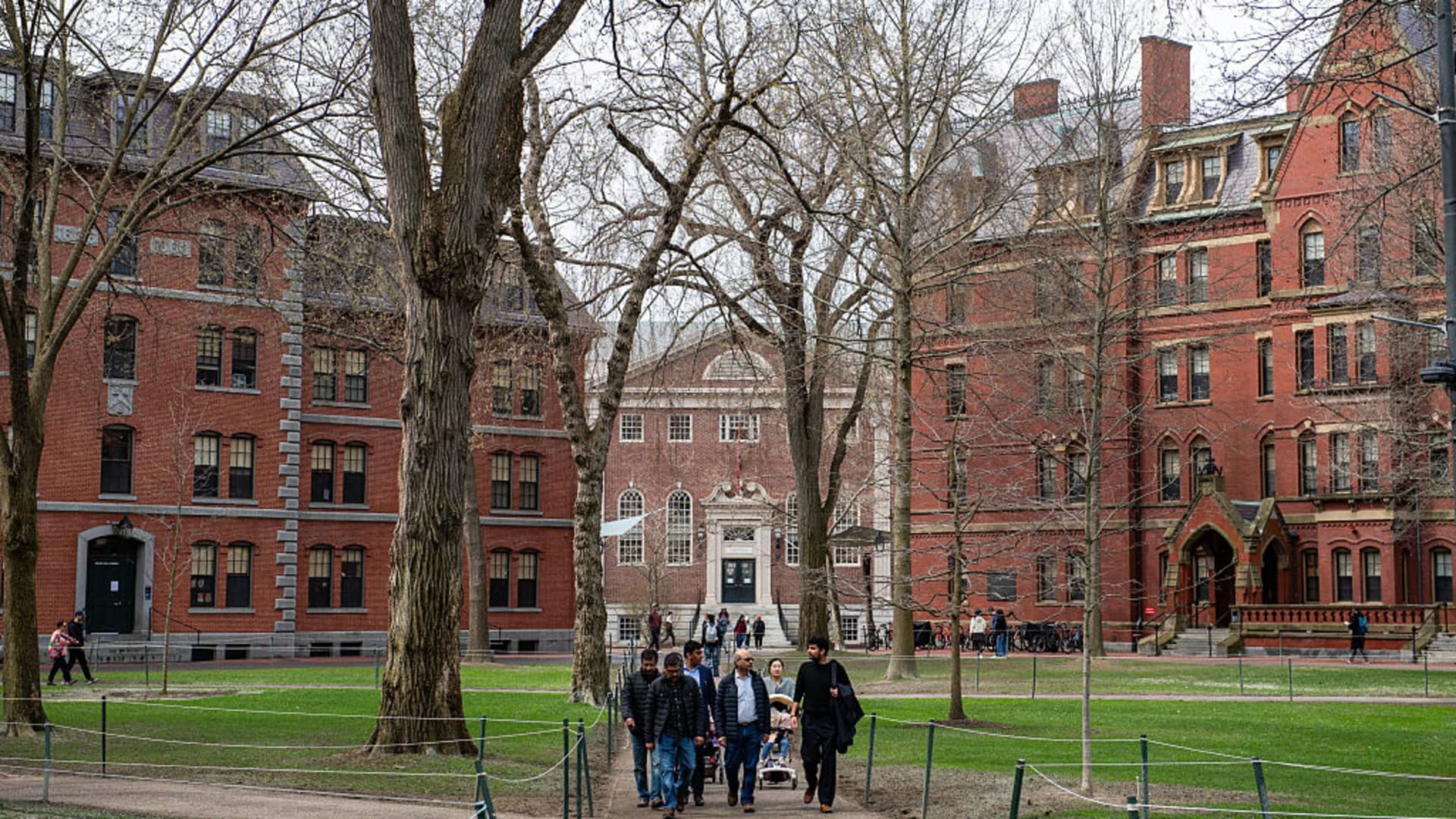The White House letter sent to Harvard University outlining a list of demands about the university’s hiring and admissions was sent without authorization, according to the New York Times, citing two unnamed people familiar with the matter.
The April 11 letter, which demanded that Harvard eliminate its DEI programs and screen international students for ideological concerns, among other sweeping changes, was “unauthorized,” people familiar with the matter told the Times.
The contents of the letter were authentic, but “there were differing accounts inside the administration of how it had been mishandled,” per the Times.
The letter was signed by Josh Gruenbaum, the commissioner of the General Services Administration, Sean R. Kevney, the acting general counsel of the Department of Health and Human Services and Thomas E. Wheeler, the acting general counsel of the Department of Education.
A Harvard spokesperson said in a statement to CNBC that “the letter that Harvard received on Friday, April 11, was signed by three federal officials, placed on official letterhead, was sent from the e-mail inbox of a senior federal official, and was sent on April 11 as promised.”
“Recipients of such correspondence from the U.S. government—even when it contains sweeping demands that are astonishing in their overreach—do not question its authenticity or seriousness,” the spokesperson said.
“It remains unclear to us exactly what, among the government’s recent words and deeds, were mistakes or what the government actually meant to do and say,” the spokesperson added.
“But even if the letter was a mistake, the actions the government took this week have real-life consequences on students, patients, employees, and the standing of American higher education in the world.”
The White House did not immediately respond to CNBC’s request for comment on the New York Times report.
The April 11 letter set off a public feud between the White House and Harvard.
The university on Monday rejected the White House’s demands that were put forth in the April 11 letter, putting almost $9 billion in federal funding for the university at risk.
The White House quickly fired back and, in response, said it would freeze approximately $2.2 billion in grants to the university.
According to the New York Times, the April 11 letter came as lawyers at Harvard University were in dialogue with the White House about how the school handled antisemitism and other issues.





